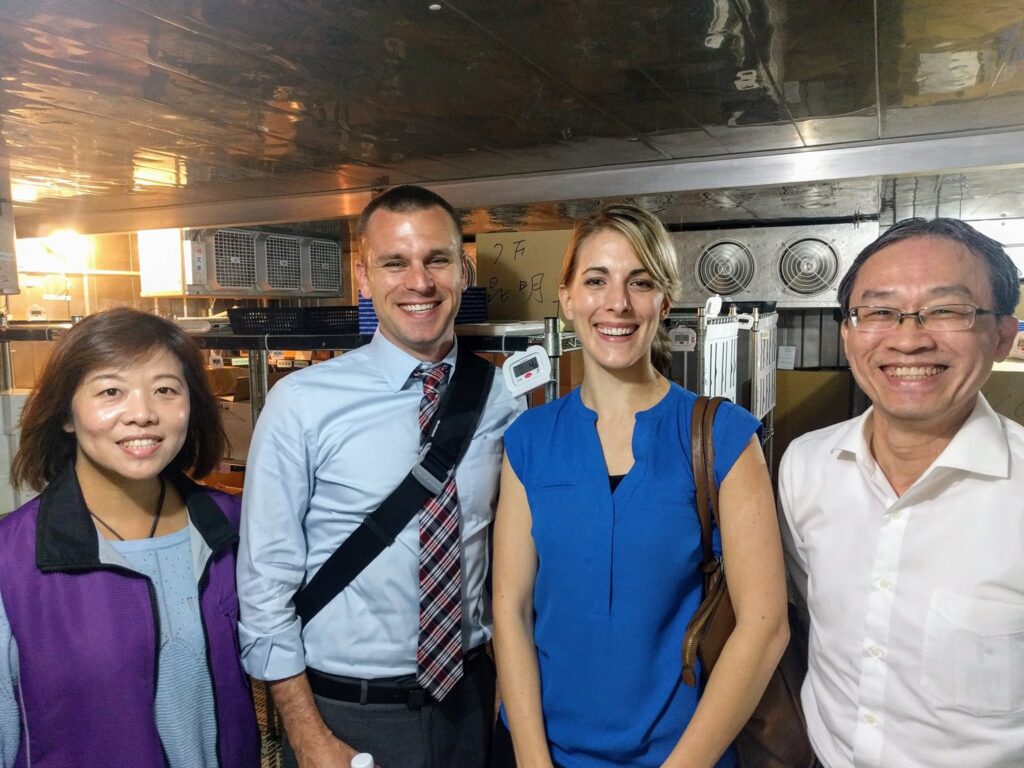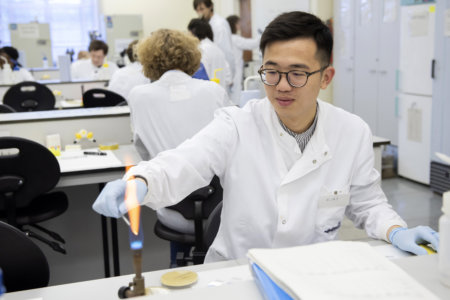
Public health plays a vital role in improving the well-being of communities worldwide, yet the situation remains concerning. The World Health Organisation’s “Tracking Universal Health Coverage: 2023 Global Monitoring Report” shows that 4.5 billion people still lack full access to essential health services. Many are still recovering from COVID-19’s impact, while emerging diseases like Mpox continue to challenge health systems. These realities highlight the urgent need for skilled public health professionals.
Public health experts work behind the scenes to prevent disease, promote wellness, and ensure access to quality healthcare. Many hold a Master of Public Health (MPH), which equips them to lead efforts that improve outcomes on a large scale. In 2024, public health teams helped curb dengue outbreaks across Southeast Asia through widespread community education and mosquito control initiatives. Meanwhile, in Africa, experts led vaccination drives to halt the resurgence of polio.
As global health threats evolve, so does the demand for trained professionals. The US Bureau of Labour Statistics projects 1.9 million job openings per year in the field from 2024 to 2034. To fill this gap, these leading universities are expanding public health programmes to prepare future leaders like yourselves to create lasting change.

The MPH at City University of Hong Kong equips students with One Health knowledge to analyse and address public health and healthcare issues. Source: City University of Hong Kong
City University of Hong Kong
Improving global health starts with education that connects knowledge with action. At City University of Hong Kong (CityUHK), the Department of Infectious Diseases and Public Health (PH) offers a Master of Public Health that does just that. This is an MPH that gives students a holistic understanding of the One Health paradigm, which recognises the interdependence of human, animal, and environmental health, enabling students to approach public health issues from a broader, more integrated perspective.
To support different career goals, the programme features a comprehensive 30-credit unit curriculum designed to equip students with essential skills in the public health sector. The programme offers three distinct streams — Research Training, Practicum, and Global — to cater to different career aspirations. If you’re drawn to academic or doctoral pursuits, the Research Training Stream hones your advanced research skills. The Practicum Stream allows you to apply public health theories in real-world settings, gaining experience in professional environments. Meanwhile, the Global Stream — available to a select number of students — broadens your international exposure, providing opportunities to work with overseas or global organisations.
Whichever stream you choose, you’ll develop essential skills in evaluating scientific literature, analysing epidemiological data, and designing impactful research projects. You’ll also sharpen your statistical and analytical abilities for disease prediction and surveillance, while strengthening leadership and management skills vital to public health practice.
Guiding you are world-class professors and practitioners ranked among the world’s top 2% most-cited scientists in 2025, according to Stanford University. Their mentorship ensures you gain both academic grounding and practical research insight.
By the end of the programme, you’ll be equipped to make a meaningful impact across various sectors, whether in government health agencies, research institutes, hospitals, NGOs, international organisations, private healthcare, or health education and advocacy. You may also choose to further your expertise through doctoral studies in health-related fields. What’s more, as a non-local graduate, you can apply for the IANG (Immigration Arrangements for Non-local Graduates) visa, allowing 24 months of unrestricted stay in Hong Kong to seek employment and gain international experience. Many MPH graduates have leveraged their degree to access global career opportunities, establishing themselves in dynamic hubs like Hong Kong and beyond. This transformative experience not only enhances your career trajectories but also enriches the communities you’ll serve worldwide.
Applications Open, learn more now!

The Johns Hopkins Bloomberg School of Public Health advances global health through research, education, and the translation of knowledge to improve lives worldwide. Source: Johns Hopkins University/Facebook
Johns Hopkins University
At the Johns Hopkins Bloomberg School of Public Health, you’re not just trained for the field; you’re meant to lead it, too. The Bloomberg School of Public Health is known for its unrivalled breadth and depth of programmes that are hands-on and flexible. Choose from more than 90 degree programmes and 40 certificate qualifications in areas such as epidemiology, mental health, and health policy management.
Whether you prefer full-time or part-time study, online or on-campus courses, the school offers flexibility for everyone to advance their careers in public health. Its four-to-one student-to-faculty ratio and small class sizes ensure full participation in a highly interactive environment.
The Master of Public Health (MPH) programme, completed in 11 months, helps students develop into professionals capable of tackling complex global health challenges. MPH students follow a flexible curriculum that can be customised to their interests. They gain access to hundreds of courses taught by over 1,500 faculty members and can take part in research assistant opportunities across 67 countries. Each student completes a capstone project, using the knowledge and skills acquired to address a public health issue connected to their goals.
Throughout the programme, they work closely with world-class faculty members who bring experience in research and real-world practice. The learning environment is dynamic, with students exchanging ideas and insights that broaden their perspectives on public health. With over 80 research centres and institutes available for internships and hands-on experiences, students can get a head start in producing groundbreaking work to improve health in their communities.

The University of Melbourne’s MPH allows you to gain practical skills through placements and connections with leading organisations, such as the Peter Doherty Institute for Infection and Immunity. Source: University of Melbourne
University of Melbourne
If you’re looking to pursue public health education in Australia, the University of Melbourne, ranked third in Australia and #25 globally for public health, should be your top choice. Public health graduates here find successful employment worldwide, even in career options they never considered – all thanks to the university’s Master of Public Health.
The programme provides students with the essential knowledge and skills for a successful career in public health, preparing them to specialise in fields like epidemiology, global health, and health policy. All specialisations allow students to advance their careers, deepen their knowledge, or explore specific areas of interest.
There are three main components to the programme. The core component offers up to six subjects, providing a multidisciplinary grounding in public health theory and practice, covering vital areas like health systems, communication, and data use.
You can then tailor your curriculum to your career goals with specialisations in fields such as climate, environment, and health. The university offers 10 specialisations to choose from, and over 60 elective subjects. This is followed by a capstone project, where you apply what you’ve learned in professional placements with public health organisations or a research project.
Completion will take you far. Graduates are highly sought after within Australia and outside of it, with career opportunities in non-governmental organisations, government agencies, healthcare institutions, research centres, and private companies.
*Some of the institutions featured in this article are commercial partners of Study International









